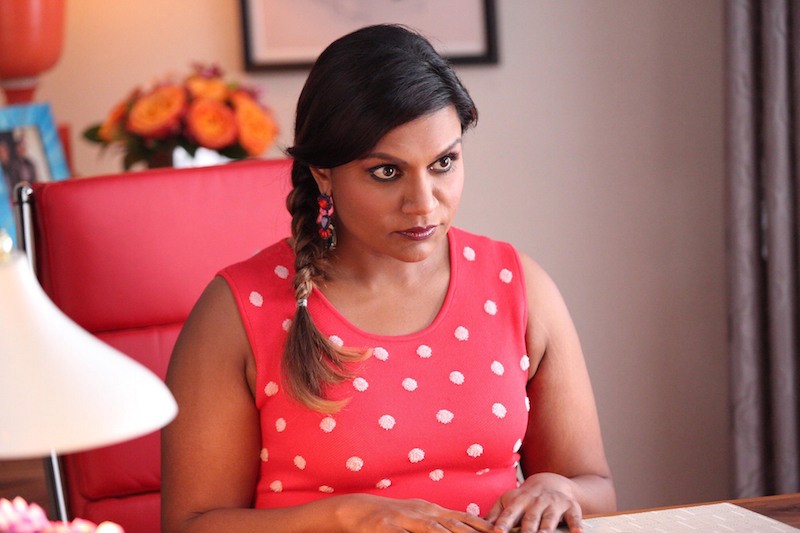Yesterday the Writers Guild of America released a diversity report that sadly shows how little progress has been made for women and minority writers in film and TV.
The report, titled “Renaissance in Reverse?” examined data through the year 2014 and found that while female television writers have made slight advances, the same cannot be said for women writers in the film sector. Advancements for minority writers have also been stagnant.
Big takeaways from the report include the fact that the number of female writers employed in TV has increased slightly from the previous report, 27% to 29%, and they’ve made strides in closing the income gap, earning 93 cents on the dollar in relation to male counterparts, an increase of two cents. But that the gap in film earnings has widened yet again, going down by nine cents: Female screenwriters now make 68 cents on the dollar.
The report’s conclusion offers a bleak summary: “Progress has been slow at best for women and minority writers in an era of television renaissance, while film sector stagnation has witnessed either anemic advances or actual reversals of fortune for groups of writers that remain woefully underrepresented in both sectors.”
“The Guild has watched for years as the progress made by our industry has, in essence, flatlined. Today’s report makes it emphatically clear that our Guild needs not just to mirror a broken system, but to work to change it,” said WGAW president Howard A. Rodman.
This study comes not long after Dr. Martha Lauzen’s annual Celluloid Ceiling Report revealed that, in 2015, women made up just 9% of directors of the top 250 grossing films. Lauzen’s research into women’s employment behind-the-scenes in the 2014–2015 television season seems to echo this study: Women are faring slightly better in the realm of television than film, but equality hasn’t been reached in either medium.
Key findings for women and minority writers are listed below. You can read the entire report here.
Women Writers
The previous Hollywood Writers Report noted that women’s shares of both television and film employment were on a downward trajectory, falling about a percentage point over the study period. This report, however, reveals a small rebound in employment for women in both sectors, if not in relative earnings:
— Since 2012, the last year covered in the previous report, women’s share of television employment increased from 27 percent to about 29 percent — which is the highest share for the group on record.
— Women were underrepresented among television writers by a factor of a little less than 2 to 1 in 2014.
— Since the last report, women’s share of film employment increased by 2 percentages points to about 17 percent — which equals the share the group posted four years earlier in 2010.
— Women were underrepresented among film writers by a factor of nearly 3 to 1 in 2014.
— Since the previous report, the gender earnings gap in television has continued to decline slowly.
— Women television writers earned 93 cents for every dollar earned by their white male counterparts in 2014, which represents a 2 cent increase in relative earnings since the previous report.
— The gender earnings gap in film continued to widen a bit after 2012, the last year covered in the previous report, despite a 5.5 percent increase in film earnings for women writers between 2008 and 2014.
— Women film writers earned 68 cents for every dollar earned by their white male counterparts in 2014, down 9 cents since the last report.
Minority Writers
Minorities are falling further behind in industry employment relative to their growing share of the U.S. population (i.e., the top line), particularly in the film sector (i.e., the bottom line). Since the last Hollywood Writers report, however, minority writers gained a little ground on their white male counterparts in film employment but treaded water in television. The earnings story for minorities largely parallels the employment one. That is, while the minority earnings gap in television remained unchanged since the last report, it shrank slightly in film. Some key findings:
— The number of employed minority television writers increased 82.7 percent between 2008 and 2014.
— Since the last report, the minority share of television employment has remained 24 flat at about 13 percent.
— Minorities remained underrepresented by a factor of nearly 3 to 1 among employed television writers.
— The minority share of film employment increased a percentage point to about 7 percent in 2014.
— Minorities were underrepresented by a factor of more than 5 to 1 among employed film writers.
— The television earnings gap for minorities was unchanged since the last report.
— Minority television writers earned 80 cents for every dollar earned by white male television writers in 2014, virtually identical to the 79 cents figure evident in 2012.
— The film earnings gap for minorities closed slightly again between 2012 and 2014.
— Minority film writers earned 61 cents for every dollar earned by white male film writers in 2014, up from 55 cents figure evident in 2012.
[via WGA]






